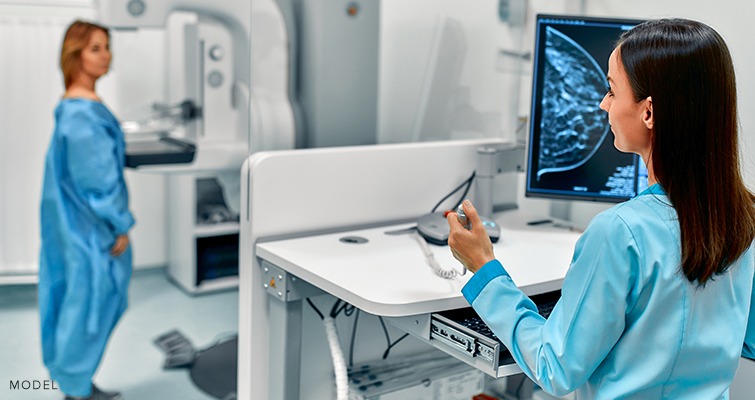
In 2021, radiologists across the country noticed an unusual pattern in the results of their patients’ routine screening mammograms. It showed abnormally enlarged lumps forming in the armpit, a sign that points towards cancer developing in the body. These results prompted a study by the University of Pennsylvania to establish why more people were exhibiting these symptoms, and it was determined that these particularly enlarged nodes were actually a side effect of the COVID-19 vaccine.
Routine mammograms are usually carried out to detect early signs of breast cancer. But because of these inaccurate results brought about by the vaccine, patients are unsure how to manage their schedules for their mammograms after receiving the vaccine.
How Can the COVID-19 Vaccine Affect My Mammogram Results?
Since it has been found that all COVID-19 vaccines can cause enlargement of the lymph nodes in the armpit near the vaccine site, many women get surprised and face unnecessary stress when they receive their results and fear the possible diagnosis of breast cancer.
But doctors are now more sure that a discovered enlarged lymph node is not a cause for concern. They’re capable of doing further testing to prove if this is a false positive result, which means that while the mammogram result was not normal, there is still the possibility that no cancer is present. It’s for this reason that many still encourage women to push through with their mammograms, especially when they feel or think something is not normal in their breasts.
What Does the Swelling Mean?
Swelling is usually considered a negative reaction to the vaccine, but this positive reaction shows that the body is responding to the vaccine. This is called an immunogenic response, which is a reaction that occurs when the vaccine particle enters the body.
As the vaccine is administered near the armpits, it’s normal for that area to swell, especially because the lymph nodes are among the first responders of the immune system. But those who experience swelling in the armpit and nearby areas after receiving their vaccine can expect it to return to normal size after 2 to 3 days.
How to Manage Your Mammogram and COVID-19 Vaccine Schedule
There’s no exact formula to answer whether you should delay your mammogram test because of the COVID-19 vaccine or vice versa because there is no “right time” to wait for when we’re discussing health.
However, if you just got the vaccine, it is advisable to wait at least 4 to 6 weeks before scheduling a mammogram screening for the most accurate results. Here are some guidelines to discuss with your healthcare provider when considering the risks and benefits of delaying your mammogram:
- Delaying a diagnostic mammogram in order to get the COVID-19 vaccine or because you recently got administered with the vaccine is not highly recommended. But because you know your body best, consult with your doctor if you can get a mammogram even if it has been less than 4 weeks since your second dose of the vaccine.
- If you have a history of breast cancer, try to get the COVID-19 vaccine administered in the opposite arm from where you had breast cancer. If you had cancer in both breasts, consult your healthcare provider to determine the best approach.
- While both can be a life-saver, it is best to schedule your mammogram before getting the COVID-19 vaccine. In this way, delaying appointments wouldn’t be necessary, and you can ease your mind of any anxiety and worry about the vaccine causing a false-positive result.
Putting all this information linking the COVID-19 vaccine and its effect into serious consideration, mammograms are still one of the most essential and effective tools for detecting breast cancer early, and it’s necessary to carry out these tests even before patients start to experience symptoms. Cancer is easier to treat when detected in its early stages, and doctors can present patients with the best treatment plan and services, involving breast reconstruction options.
It’s also best to keep in mind to always consult your healthcare provider to stay informed regarding the best approach when it comes to your health.

Comments are closed here.